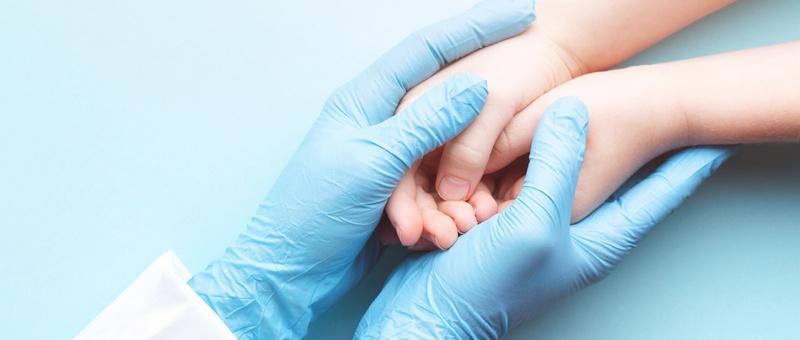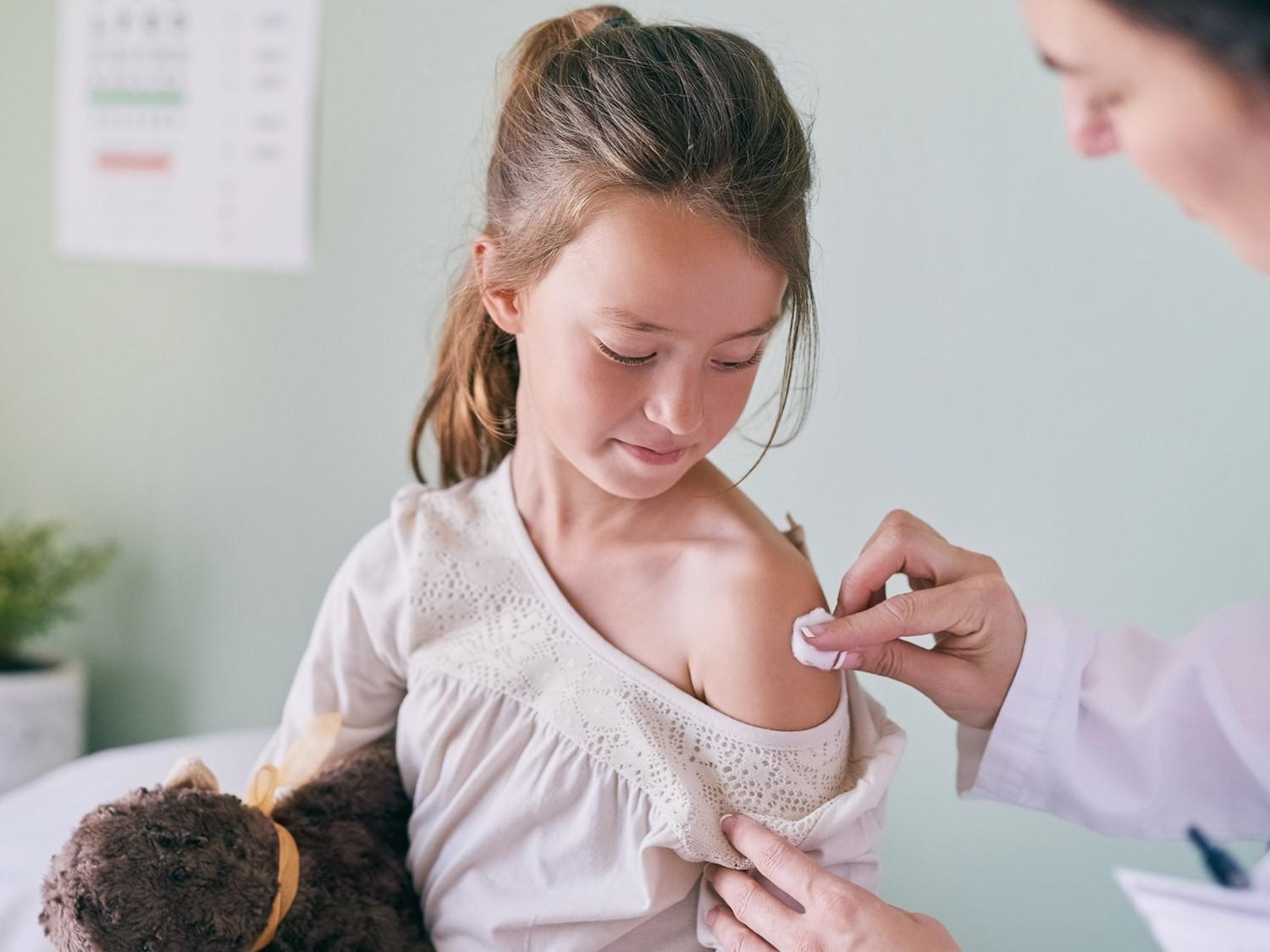
Measles is back: why vaccines matter
Peer reviewed by Dr Colin Tidy, MRCGPAuthored by Victoria RawOriginally published 22 Jul 2025
- DownloadDownload
- Share
Vaccines have been at the forefront in recent years, especially after the COVID-19 pandemic. While coronavirus vaccines have dominated the conversation, awareness of others, such as the MMR vaccine, which protects against measles, mumps, and rubella, has quietly declined.
In this article:
In the UK, statistics show that fewer people are getting vaccinated, both for themselves and their children. While there may be many reasons for this, the impact is clear. If vaccination rates keep dropping, we’ll see more preventable diseases coming back - as we've already seen with whooping cough and, more recently, measles.
The World Health Organization (WHO) says measles is on the rise globally because MMR vaccination rates are falling short of the 95% target needed to keep the disease at bay.
Continue reading below
Why getting vaccinated is important for your health
The NHS provides routine vaccinations free of charge to protect you and your children from serious, potentially life-threatening diseases.
It’s important to have these vaccines at the recommended ages - not just to protect your own health, but to help protect others around you too.
Professor Rachel Isba, Consultant in Paediatric Public Health Medicine, Alder Hey Children's Hospital, Liverpool, UK explains that evidence shows vaccinations have saved millions and millions of lives since global universal vaccination was introduced.
"They're one of the greatest public health and medical interventions of all time - up there with clean water," says the Professor of Children and Young People's Health, Lancaster University, UK. "Their success has led to a situation where many people have not witnessed the diseases that vaccines help prevent."
Professor Rachel Isba, Consultant in Paediatric Public Health Medicine, Alder Hey Children's Hospital, Liverpool, UK

Isba highlights that getting vaccinated is one of the simplest and safest ways to protect your child from serious - and sometimes fatal - diseases.
She says: "If there is anything else we could do in life to prevent our children from getting ill, we would do it."
Why are vaccination rates falling?
There are many reasons why vaccination rates are declining. For some, it may include everyday obstacles such as fitting appointments into busy lives. Others may struggle with booking systems or miss out on reminders.
Isba explains that another major reason may be the belief that diseases such as measles are no longer a threat. Many people haven’t seen anyone with measles in their lifetime, so it’s easy to assume it’s a thing of the past.
"However, the reason you don't know anyone who has ever had measles is because we vaccinate against it," she explains. "This situation is similar to last year's rise in whooping cough cases.
"A clear way to illustrate this is by comparing it to smallpox. You've never seen anyone with smallpox - that's because the disease was eradicated through vaccination."
Continue reading below
How safe are vaccines?
With the rise of social media came increased exposure to misinformation - especially around vaccine safety. Often, these views are based on opinion rather than evidence, meaning some people may question the safety of vaccines without researching the facts.
Isba emphasises that routine vaccinations - such as those used by billions of people worldwide are safe and effective. She advises that if you're unsure what’s best for your child, it’s always a good idea to speak with a healthcare professional for guidance and reassurance.
This could be anyone, such as a doctor, nurse, or health visitor - someone medically trained with accurate information.
"The vast majority of parents and carers want to do what is best for their child," says Isba. "Getting vaccinated is what's best. But if you need to have a conversation about that, this is a perfectly reasonable thing to do."
Why the measles vaccine matters
Measles is a highly contagious disease that can lead to severe illness - especially in young children and people with weakened immune systems.
Recognising the signs of measles
First sign: High fever, usually starting 10–12 days after exposure - can range from 7–21 days, lasting 4–7 days.
Early symptoms: Runny nose, cough, red and watery eyes, small white spots inside the cheeks.
After several days: Rash appears on the face and upper neck.
Rash spreads: Over about 3 days, spreading to hands and feet.
Rash duration: Lasts 5–6 days, then fades.
Timing of rash: Typically appears around 14 days after exposure, with a possible range of 7–18 days.
Isba says that measles mainly affects those who haven’t been vaccinated, so the best way to protect your health is by getting the MMR vaccine before these symptoms show.
Continue reading below
Can everyone get the measles vaccine?
A small number of people cannot be vaccinated due to underlying health conditions. Additionally, children under the age of one are not eligible for the MMR vaccine.
"This constitutes a significant portion of the population," says Isba. "The idea is that if the rest of us get vaccinated against measles, we will protect those who can't."
Health complications caused by measles
Measles can cause a range of severe health complications, especially in those who are most vulnerable.
Isba highlights the health dangers associated with the disease:
Ear infections - the most common and can affect your long-term hearing.
Inflammation of the brain (encephalitis) - raises pressure inside your skull, harming brain tissue and function.
Pneumonia - measles weakens your immune system, making you more vulnerable to pneumonia during the infection.
Isba warns that if you get pneumonia, you may develop a condition called immune stunning.
She explains: "This means that even after recovering from measles, your immune system may not function properly for several months. This can increase your susceptibility to other infections."
If a secondary infection is caused by bacteria, it may even lead to sepsis - a life-threatening condition.
Other serious complications of measles include blindness, seizures, and meningitis.
Measles during pregnancy can also cause severe outcomes - such as pregnancy loss, early delivery, and babies being born underweight.
Subacute sclerosing panencephalitis (SSPE)
One rare, but almost always fatal, health complication stemming from measles is Subacute sclerosing panencephalitis (SSPE).
This condition can develop 7-10 years after you have recovered from measles - even if the infection was mild. It causes worsening mental decline, seizures, and death. You have a higher chance of developing it if you were infected before the age of two.
How to help stop the spread of measles
A simple way to help fight the rise in measles cases is to get the MMR vaccine - especially if you're travelling abroad, where you may be exposed to measles in other countries as well.
"Measles is all over the world at the moment," says Isba. "It's a global issue - not just confined to the UK. If you were going on holiday to somewhere with malaria, you would take medicine to stop you getting malaria. Similarly, you should consider the MMR vaccine like any other travel vaccine."
Isba concludes that without higher MMR vaccination rates, measles outbreaks will continue to rise.
She advises that it’s never too late to get the measles vaccine, regardless of your age or your child’s - as long as they are over one year old. It remains the most effective way to protect your child’s health against catching the disease.
"If you decide you want to get vaccinated, you'll be welcomed with open arms," Isba says. "It's straightforward, safe, and a good opportunity to check whether all your other vaccines are up to date too."
If you're unsure which vaccines you're eligible for, or when you should have received them, the NHS has a helpful list to guide you.
Patient picks for Childhood vaccinations

Children's health
Free chickenpox vaccine to be offered to children in England for the first time
From January 2026, babies in England will be offered a free vaccine against chickenpox for the first time. The new programme is part of the NHS routine immunisation schedule and is expected to protect hundreds of thousands of children every year from a condition that is often more serious than people realise.
by Thomas Andrew Porteus, MBCS

Infections
Immunisation
This leaflet provides information about the normal immunisation schedule for people in the UK.
by Dr Philippa Vincent, MRCGP
Article history
The information on this page is peer reviewed by qualified clinicians.
Next review due: 22 Jul 2028
22 Jul 2025 | Originally published
Authored by:
Victoria RawPeer reviewed by
Dr Colin Tidy, MRCGP

Ask, share, connect.
Browse discussions, ask questions, and share experiences across hundreds of health topics.

Feeling unwell?
Assess your symptoms online for free